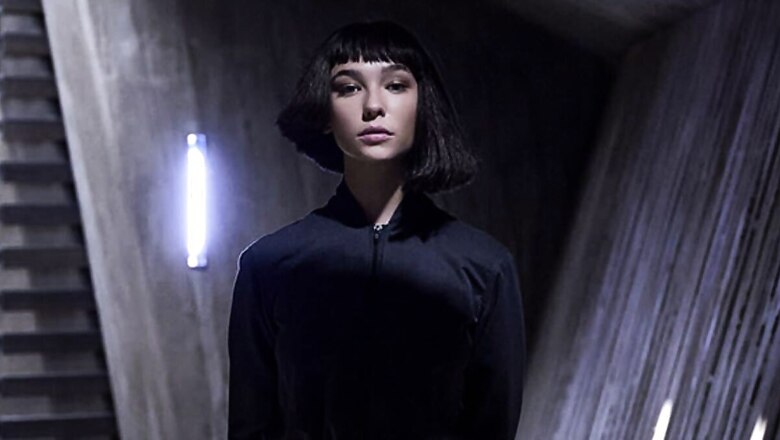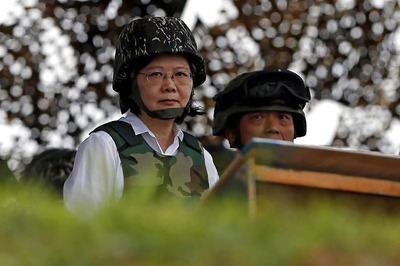
views
Citadel Diana Review: First things first, you don’t need to watch Citadel to understand the intricacies of Citadel: Diana. But if you’ve seen the Priyanka Chopra Jonas and Richard Madden starrer, comparisons are inevitable. And in doing so, Citadel and Citadel: Diana will constantly one-up each other. While the Russo Brothers’ Citadel was ultra-glamorous, the Matilda De Angelis starrer appears more classic and subdued. Whereas Citadel was packed with twists and turns, Citadel: Diana adopts a more nuanced and compelling storytelling style.
The six-episode series revolves around Diana Cavalieri – also known as Agent 308 – who works for Manticore Italy, a syndicate formed by the wealthiest families in the world. In Italy, it’s run by the Zanis, the biggest arms manufacturer. Set in Milan in 2030, we’re introduced to a high-crime, politically unstable country where the Prime Minister intends to pass a law to liberalize arms and weapons. At present, Manticore Italy has been ousted from power and the European Council by its espionage counterparts in France and Germany.
Owner Ettero Zani’s second son, Edo, doesn’t believe in Manticore’s ideologies and wants to transform it into an organisation that brings about world order and peace. He seizes the opportunity to broker a business deal with Manticore France and Germany, keeping his father in the dark. But this father-son duo constantly tries to one-up each other. Along with Diana, Edo tries to change the future of Manticore Italy. While Edo is convinced Diana is his one true ally, Ettero constantly questions her intentions, suspecting her of treachery.
We also get a glimpse into Diana’s life. Her parents died in a plane crash in 2007, and ever since, she has been obsessed with discovering who blew up the plane. She joined Manticore Italy eight years before 2030. Her younger sister, Sara, believes Diana works in finance, but constantly doubts her. Thrown into this mix is a mega-weapon, with one part held by the French and the other by the Germans. This becomes a major point of conflict, as the Italians attempt to drive a wedge between the two, aiming to regain power through readmission into the European Council, with France and Germany lifting sanctions on them.
Amid these scuffles and manipulative mind games, Citadel continues to operate in the background. For the uninitiated, Citadel is an organization formed by a group of spies who are loyal to no man or nation, dedicated to providing safety and security for everyone. Citadel and Manticore are arch-nemeses. So, who is Diana loyal to? Is she a double agent? Can she finally avenge her parents’ deaths? Can power, position, and espionage networks impact personal relationships?
As mentioned earlier, Citadel: Diana will remind you of a true-blue, old-world spy series. Don’t get us wrong—it’s definitely modern and slick in its own way. But the treatment that the makers adopt makes it more realistic and distinctive. Diana is not a latex bodysuit or high-slit gown-clad agent. She doesn’t deliver witty one-liners every time she opens her mouth. She lacks the oomph of Priyanka’s Nadia Sinh and the quirky, hilarious odd-duck behavior of Jodie Comer’s Villanelle in Killing Eve. And yet, Diana is memorable. Her ordinariness is her biggest USP.
Diana is indeed an interesting character. As a young adult, she mastered the art of locking away her fragilities, vulnerabilities, emotions, and sentiments deep within her heart. Though she appears stoic and emotionless throughout most of the narrative, we see her softer side during interactions with her sister. As a result of the intense training she endures, she suffers from Ménière’s disease, which is triggered under stressful conditions.
We only wish the makers had explored the various layers of her character with a little more finesse. However, in one scene where she’s hit with the simultaneous news that her mentor has died and her sister has given birth to a baby girl, Diana breaks down, unable to choose between agony and joy. Matilda truly moves you with her performance here. But beyond that, her blank expressions constantly leave you guessing about her next move.
This is precisely where Citadel: Diana’s weakest link lies. Her restrained emotional display doesn’t serve the narrative after a point, as the writing becomes predictable. For a spy thriller, there are few moments that will keep you on the edge of your seat or biting your nails. However, if you treat it as an espionage drama, you won’t be disappointed, as the series is well-crafted with meticulous attention to detail. As a drama, it manages to engage you, even with its slow pace, which suits the story.
We also wish the makers had embraced the cultural identity of Italy and woven elements of it into Citadel: Diana. It wouldn’t be wrong to say the plot could have unfolded in any other part of the world, as Milan never becomes a character the way Moscow does in Killing Eve. Still, credit goes to cinematographer Diego Dussuel and editor Patrizio Marone for amplifying the visual aesthetics of this taut series. Thankfully, no time is wasted in establishing the background or veering off into peripheral subplots. Mokadelic’s music and background score are poignant.
Matilda delivers a brilliant performance with the material at hand and makes the otherwise lackluster Diana likable. She’s unassuming and wears the most common outfits in shades of grey, black, brown, and navy blue—a reflection of her state of mind and being. Unlike most female spies in mainstream storytelling, she’s comfortable not flaunting her sexiness. The only physical feature that stands out about Diana is her strikingly asymmetrical haircut. Like real-world spies, she’s okay being low-key, blending into the crowd.
The action sequences, featuring approximately 850 stunts, may not stand out as much as those in Citadel, due to a lack of novelty. However, Matilda is fantastic and effortless in one particularly elaborate sequence. During her fight and chase with a German agent, she takes a nearly 450-meter-long zipline, followed by a cat-and-mouse chase in a dilapidated building in a ghost town. It’s truly a visual treat! In other scenes, high-tech spy gadgets overshadow the hand-to-hand combat between spies.
The rest of the cast, including Lorenzo Cervasio, Maurizio Lombardi, Julia Piaton, Filippo Nigro and Giordana Faggiano, is impressive. Citadel: Diana and its lead character may lack the sassiness of Citadel and Nadia, respectively, but it is certainly a more mature, well-crafted and intense narrative. Watch it for Matilda’s stellar performance and the series’ clean, cold and aesthetic execution.

















Comments
0 comment